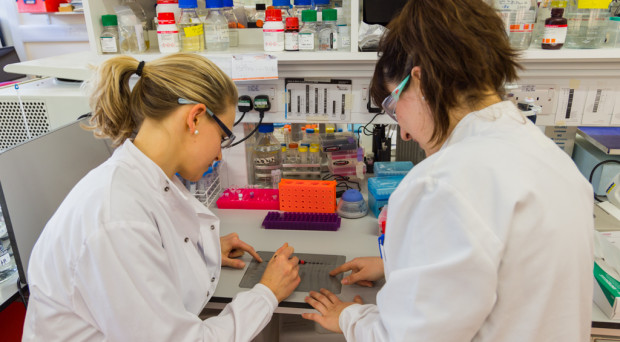
I know I would not have survived my PhD without the help of the postdoc who was assigned to drag me through it.
I was fresh out of my undergraduate degree, I hadn’t done a Masters, I did have a pretty hefty amount of lab experience (well, I knew a pipette from a petri dish anyway) – but designing experiments? Analyzing data? Picking apart papers? Absolutely no chance.
I was prepared to work hard but I wasn’t remotely prepared for feeling as out of my depth as I did. And I was fortunate enough to be taken under the wing of one of the most patient, intelligent, benevolent people I have ever met. I was terrified and overwhelmed, and he taught me to have confidence in myself and that actually I might be OK at this science thing after all.
But enough of the clichés. A couple of months ago I was assigned my very own shiny new PhD student to look after. And only now do I realize what a colossal amount of time and energy the postdoc who looked after me must have invested – and I’m faced with the question of whether I’m going to do the same for mine.
And of course the answer is yes. I know it’s hours of meetings over coffee discussing The Question; days of watching procedures that you’ve done thousands of times before being executed at a snail’s pace; weeks worth of time that you could be spending on your stuff ‘wasted’. But is it really a waste of time?
I don’t think so. I would like to think I could help to guide someone through the minefield that is a PhD the same way I was tugged backwards through mine (my fault, not my supervisor’s – I wasn’t very efficient at moving forwards).
I’m talking about knowing if you tip the tube to the left instead of holding it upright then the liquid separates better…All the tricks of the trade that people don’t write in their methods and protocols.
I believe there is a huge amount of value to be gained by taking the time to educate the next generation of scientists – but I’m not talking about stuffy lectures about papers and results. I’m talking about knowing if you tip the tube to the left instead of holding it upright then the liquid separates better. If you use this size pipette instead of that one then it’s easier to transfer the stuff in question. All the tricks of the trade that people don’t write in their methods and protocols.
It takes years of getting it consistently wrong to work out these gems of information, so why waste someone else’s time making them find it out for themselves all over again, when they could be doing something that’s actually productive?
The reason I will invest just as much time in my student as my PhD supervisor did in me is because while I’d like to think I’m going to become a group leader, I know the stats aren’t in my favor even if my enthusiasm is. However, if I can help to educate the next generation of scientists so that they stand a chance of succeeding where I might fail – then maybe, just maybe, I’ll sleep a little easier at night.
This post is the second of Bryony’s series ‘Trials, tribulations, triumphs, and test tubes: life as an early career researcher’.
Comments